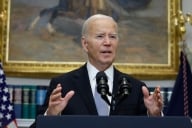You have /5 articles left.
Sign up for a free account or log in.
Colleges that won the right to consult with one another to collaborate on some financial aid policies received good news Friday from the U.S. Government Accountability Office: A report ordered by Congress found that the antitrust exemption granted to these colleges was not resulting in students or their families paying more for colleges.
A contrary finding would have made it much more difficult for these colleges to hold on to the exemption when it expires in two years. On the other hand, the GAO didn't find as much good coming from the exemption as colleges believe is taking place.
The exemption is one legacy of a federal investigation that changed the way some elite colleges give out their aid dollars. Until the U.S. Justice Department stunned colleges by challenging the practice in an inquiry that became public in 1989, colleges that were members of the Overlap Group -- generally among the most prestigious private colleges in the country -- met each year to determine the financial need of students admitted to more than one member institution. Colleges said that the practice assured fairness, and allowed students to select colleges for educational, not financial, reasons. But the Justice Department and some other critics perceived illegal antitrust collusion and through negotiations and a lawsuit, the traditional Overlap Group activities ceased.
Colleges did win a reprieve from Congress on one key issue, however: The Overlap Group also worked to set common policies on how certain financial questions would be answered with regard to determining financial need. In a 1992 law, Congress said that colleges that admit students without regard to need could continue to meet to develop common policies on certain aid issues. When Congress renewed that law in 2001, it also asked the GAO to study its impact -- and that resulted in the analysis released Friday.
The 28 colleges -- some but not all alumni of the Overlap Group -- that have used the exemption to work together on aid issues are known as "568" institutions by the portion of the law where that exemption was created. The GAO report notes that their major activity has been the development of a "consensus approach" on certain aid questions. Among those questions are how to calculate home equity, how to consider geographic variations in cost of living, and whether to count family debt.
But while the GAO noted the work that went into developing the "consensus approach," it also found that many colleges adopted the approach only in part.
To look for the impact of the antitrust exemption, the GAO then compared a series of measures (college costs, aid awards, etc.) to various groups of students at colleges using the antitrust exemption and to comparable colleges that weren't. The bottom line was that GAO found no "appreciable difference" in what families would have to contribute at the two groups of institutions. The GAO also found no impact on affordability.
In a response on behalf of the 568 institutions, Morton Owen Schapiro questioned whether some of the methodological choices used by GAO might have underplayed the positive impact of the consensus approach. Schapiro is president of Williams College and chair of the 568 Presidents' Group. He noted, for example, that Princeton was included in the control group even though it is the wealthiest institution of its kind on an endowment-per student basis. In contrast, the Massachusetts Institute of Technology was not included in the 568 group even though it is one of the most generous participants in aid awards.
Schapiro also objected to references in the GAO report that looked for evidence that the 568 group's activities were having a direct impact on the enrollment of low-income students. Schapiro said that Congress didn't request this emphasis. And although Schapiro said that the 568 members were deeply concerned with such issues, that wasn't necessarily why they were involved with this particular effort. An effort to figure out the most equitable way to count home equity isn't going to have a huge impact on those who don't have home equity, but that doesn't mean that those who do have home equity shouldn't have confidence in the fairness of the aid eligibility system, he wrote.
In a memo Schapiro sent to fellow presidents, he said that despite the concerns he outlined about the GAO report, he was left "optimistic" that the exemption would be extended. "Its successes include an increase in average need-based grant funding, enhanced transparency, improved ability for families to plan for future educational expenses, greater public confidence in need-based aid, more engagement by presidents in aid-related discussions, and growth in the number of institutions offering need-blind admissions," Schapiro wrote.








